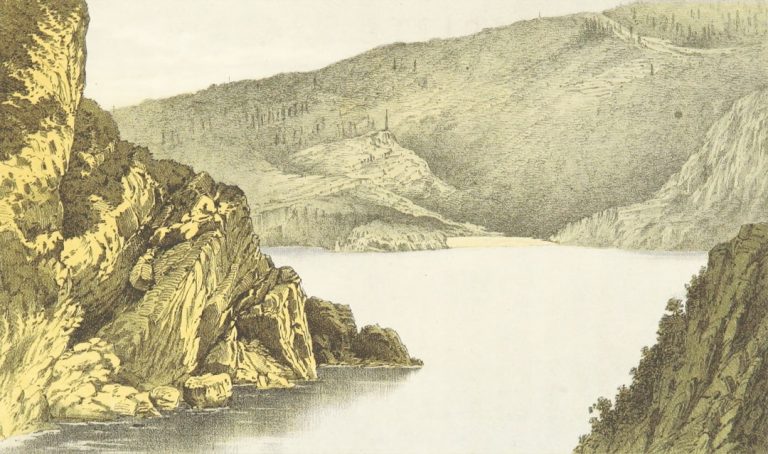
W.W. Jacobs was born on September 19, 1863, in Wapping, London. He grew up in a working-class family, with his father employed as a shipwright.
This background influenced Jacobs’ perspective and later writing. Initially working as a clerk in a shipping company, Jacobs eventually pursued his passion for literature. He began publishing his early works in various magazines, developing a distinctive writing style that combined humor with elements of suspense and horror.
Jacobs is renowned for his short stories, which often blend wit and dark humor while exploring human nature and life’s absurdities. His most famous work, “The Monkey’s Paw,” exemplifies his ability to create tension and unease while maintaining an undercurrent of irony. This story, along with others in his repertoire, demonstrates Jacobs’ talent for crafting narratives that both entertain and provoke thought about human desires and fate’s unpredictability.
Jacobs’ contributions to literature extend beyond mere storytelling. His works reflect a deep understanding of the human condition and its complexities, making him a significant figure in early 20th-century literature. His unique blend of humor, suspense, and social commentary continues to resonate with readers and influence writers to this day.
W.W. Jacobs’ impact on American literature is both profound and multifaceted, as his works have inspired countless writers across various genres. His unique blend of humor and horror has resonated particularly well with American audiences, who have long appreciated narratives that explore the darker aspects of human nature while maintaining a sense of levity.
Jacobs’ ability to create relatable characters and situations has allowed readers to connect with his stories on a personal level, making them timeless in their appeal. The influence of Jacobs can be seen in the works of American authors such as Stephen King and H.P. Lovecraft, who have drawn upon his techniques to craft their own tales of suspense and terror.
Moreover, Jacobs’ exploration of themes such as fate, consequence, and the supernatural has paved the way for future generations of writers to delve into similar subjects. His stories often serve as cautionary tales, warning readers about the dangers of unchecked ambition and desire. This moral underpinning has become a hallmark of American literature, where the struggle between individual desires and societal expectations frequently takes center stage.
As writers continue to grapple with these themes, Jacobs’ legacy endures, reminding us of the power of storytelling to illuminate the complexities of human experience.
Among W.W. Jacobs’ extensive body of work, “The Monkey’s Paw” stands out as a quintessential example of his storytelling prowess. This tale revolves around the White family, who come into possession of a mystical paw that grants them three wishes.
However, as they soon discover, each wish comes with unforeseen consequences that lead to tragedy and despair. The story masterfully builds tension through its gradual unfolding of events, allowing readers to feel the weight of each decision made by the characters. Jacobs’ use of foreshadowing and irony heightens the sense of dread, making “The Monkey’s Paw” not only a gripping narrative but also a profound commentary on the nature of desire and the human tendency to tamper with fate.
Another notable story is “The Toll House,” which encapsulates Jacobs’ ability to blend humor with elements of horror. In this tale, a man named Mr. Hargreaves encounters a mysterious toll house while traveling through the countryside.
The story takes an unexpected turn when Hargreaves learns about the toll he must pay for crossing into this eerie realm. Jacobs employs vivid imagery and clever dialogue to create an atmosphere that is both whimsical and unsettling. The juxtaposition of lighthearted banter with sinister undertones exemplifies Jacobs’ skill in crafting narratives that keep readers on edge while simultaneously eliciting laughter.
Through these stories and others, Jacobs demonstrates an unparalleled ability to engage readers through rich character development and intricate plotlines.
W.W. Jacobs’ literary oeuvre is characterized by recurring themes and motifs that reflect his keen observations of human behavior and societal norms. One prominent theme is the idea of fate versus free will, which is intricately woven into many of his narratives.
In “The Monkey’s Paw,” for instance, the characters grapple with their desires while facing the inevitable consequences that arise from their choices. This tension between agency and destiny serves as a powerful reminder of the unpredictability of life and the often-unforeseen repercussions of our actions. Jacobs invites readers to ponder whether we are truly masters of our fate or merely pawns in a larger game orchestrated by forces beyond our control.
Another significant motif in Jacobs’ work is the exploration of human folly and absurdity. His characters often find themselves in ludicrous situations that highlight their shortcomings and misjudgments. This comedic element serves not only to entertain but also to provide insight into the complexities of human nature.
In stories like “The Toll House,” Jacobs uses humor to underscore the absurdity of certain social conventions and expectations, prompting readers to reflect on their own lives and choices. By blending humor with darker themes, Jacobs creates a rich tapestry of narratives that resonate with audiences on multiple levels, making his work both thought-provoking and enjoyable.
W.W. Jacobs’ contributions to the horror and suspense genre are significant, as he skillfully navigated the delicate balance between fear and humor in his storytelling. His ability to evoke genuine terror while simultaneously eliciting laughter has influenced countless writers who seek to explore similar themes within their own works.
“The Monkey’s Paw,” in particular, has become a cornerstone of horror literature, often cited as an essential text for understanding the evolution of supernatural fiction. The story’s exploration of desire gone awry serves as a cautionary tale that resonates with readers across generations, illustrating how Jacobs’ insights into human nature continue to shape our understanding of fear. Furthermore, Jacobs’ impact extends beyond individual stories; he has also played a crucial role in shaping the conventions of horror literature itself.
His use of suspenseful pacing, vivid imagery, and relatable characters has set a standard for writers seeking to create tension within their narratives. The psychological depth present in Jacobs’ work invites readers to confront their own fears and anxieties, making his stories not only entertaining but also deeply resonant on an emotional level. As contemporary authors continue to draw inspiration from Jacobs’ techniques, it is clear that his influence remains palpable within the horror genre today.
The legacy of W.W. Jacobs is evident in contemporary literature, where his influence can be traced through various genres and styles. Modern writers often cite him as an inspiration for their own explorations of humor intertwined with darker themes, demonstrating how his unique approach continues to resonate with audiences today.
The blending of comedy and horror—a hallmark of Jacobs’ work—has become increasingly popular in contemporary storytelling, as authors seek to capture the complexities of human experience through multifaceted narratives that reflect both joy and despair. Moreover, Jacobs’ exploration of moral dilemmas and the consequences of human desires has paved the way for contemporary authors to delve into similar themes within their own works. Writers such as Neil Gaiman and Joe Hill have acknowledged Jacobs’ influence on their storytelling techniques, particularly in how they craft narratives that challenge readers’ perceptions of reality while maintaining an engaging sense of humor.
As literature continues to evolve, W.W. Jacobs’ contributions serve as a reminder that great storytelling transcends time and genre, leaving an indelible mark on those who dare to explore the depths of human experience.
W.W. Jacobs’ life was marked by both personal challenges and professional triumphs that shaped his literary career. Growing up in London during the late 19th century provided him with a rich tapestry of experiences that would later inform his writing.
His early career as a clerk in a shipping company exposed him to various facets of life at sea, which would become a recurring backdrop in many of his stories. Despite facing financial difficulties early on, Jacobs persevered in pursuing his passion for writing, eventually gaining recognition for his short stories published in magazines such as “The Strand” and “Punch.” This success allowed him to transition from clerk to full-time writer, solidifying his place within the literary canon. Jacobs’ career flourished during the early 20th century when he became known for his humorous tales set against maritime backgrounds or featuring eccentric characters from working-class life.
His ability to capture the nuances of everyday existence while infusing them with elements of suspense set him apart from other writers of his time. As he continued to publish collections such as “The Lady of the Barge” and “More Tales from the River,” Jacobs garnered acclaim for his distinctive voice and storytelling prowess. Even after his death on September 1, 1943, W.W.
Jacobs left behind a rich legacy that continues to inspire writers today—a testament to his enduring impact on literature and storytelling as an art form.
If you’re interested in exploring more about literary analysis and enhancing your understanding of authors like W.W. Jacobs, you might find the article on “Reading Comprehension: Evaluate Sources and Evidence” particularly enlightening. This piece delves into the critical skills needed to assess literary works and the evidence used to support various interpretations, which can be crucial when studying the works of renowned short story writers. You can read the full article here: Reading Comprehension: Evaluate Sources and Evidence.
FAQs
Who was W.W. Jacobs?
W.W. Jacobs was an English author best known for his classic horror story “The Monkey’s Paw” and his humorous tales of life in the English countryside.
When was W.W. Jacobs born?
W.W. Jacobs was born on September 8, 1863, in London, England.
What is W.W. Jacobs best known for?
W.W. Jacobs is best known for his short story “The Monkey’s Paw,” which has become a classic of horror fiction. He is also known for his humorous stories depicting life in the English countryside.
What are some of W.W. Jacobs’ notable works?
In addition to “The Monkey’s Paw,” some of W.W. Jacobs’ notable works include “The Lady of the Barge,” “Many Cargoes,” and “Odd Craft.”
What was W.W. Jacobs’ writing style?
W.W. Jacobs’ writing style is characterized by its wit, humor, and ability to create tension and suspense. He often depicted the lives of ordinary people in a realistic and relatable manner.
Did W.W. Jacobs receive any awards or honors for his work?
W.W. Jacobs did not receive any major awards or honors during his lifetime, but his work has been widely praised and continues to be celebrated for its enduring appeal.






